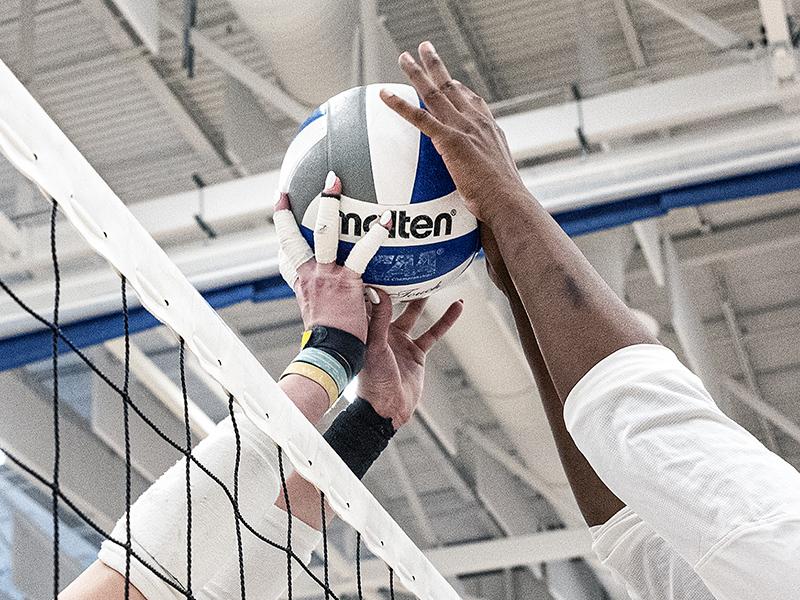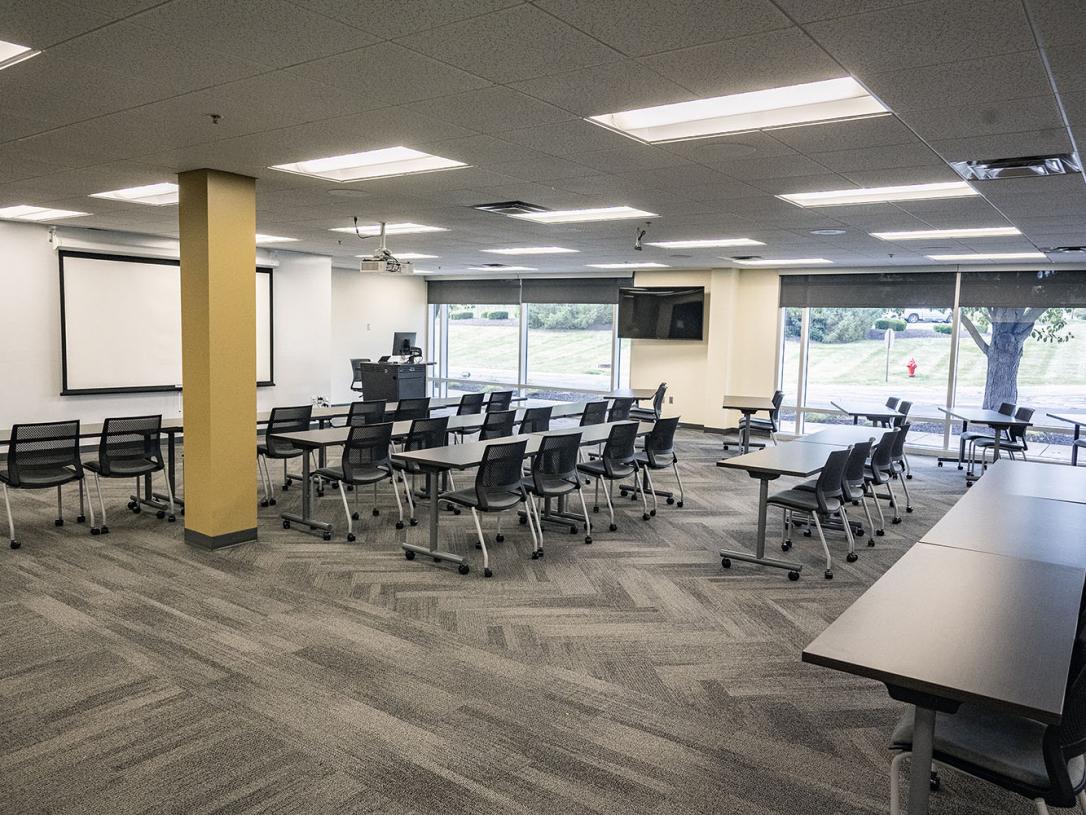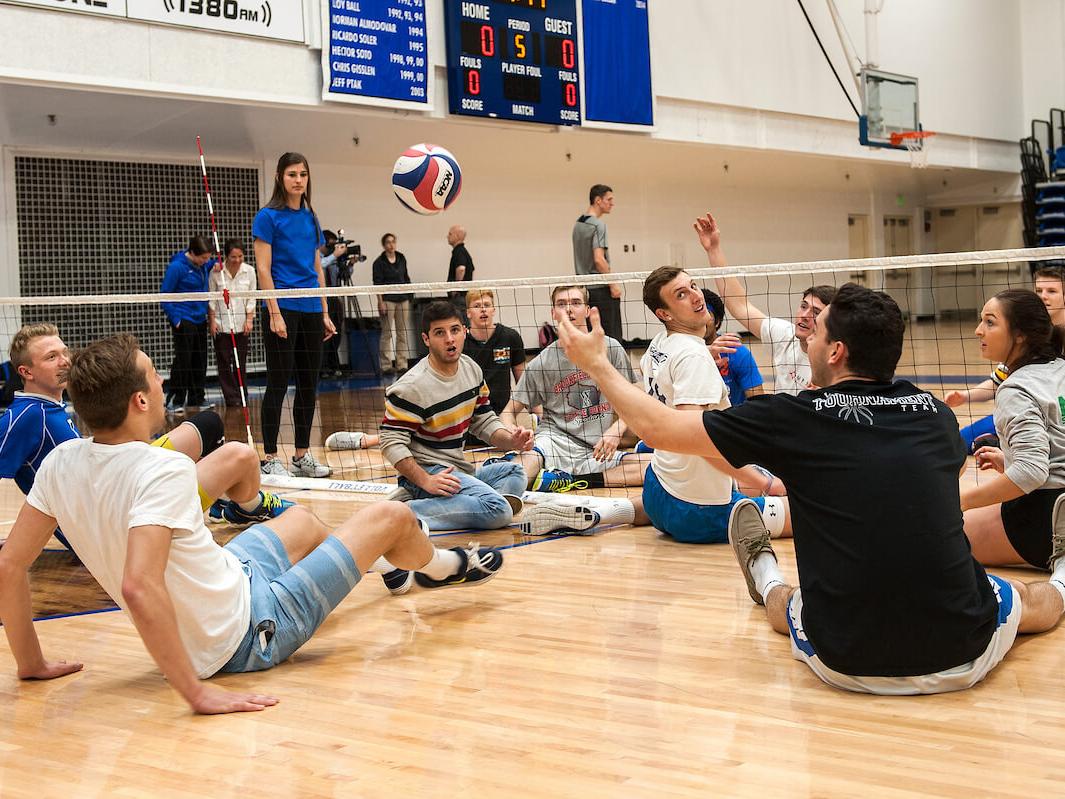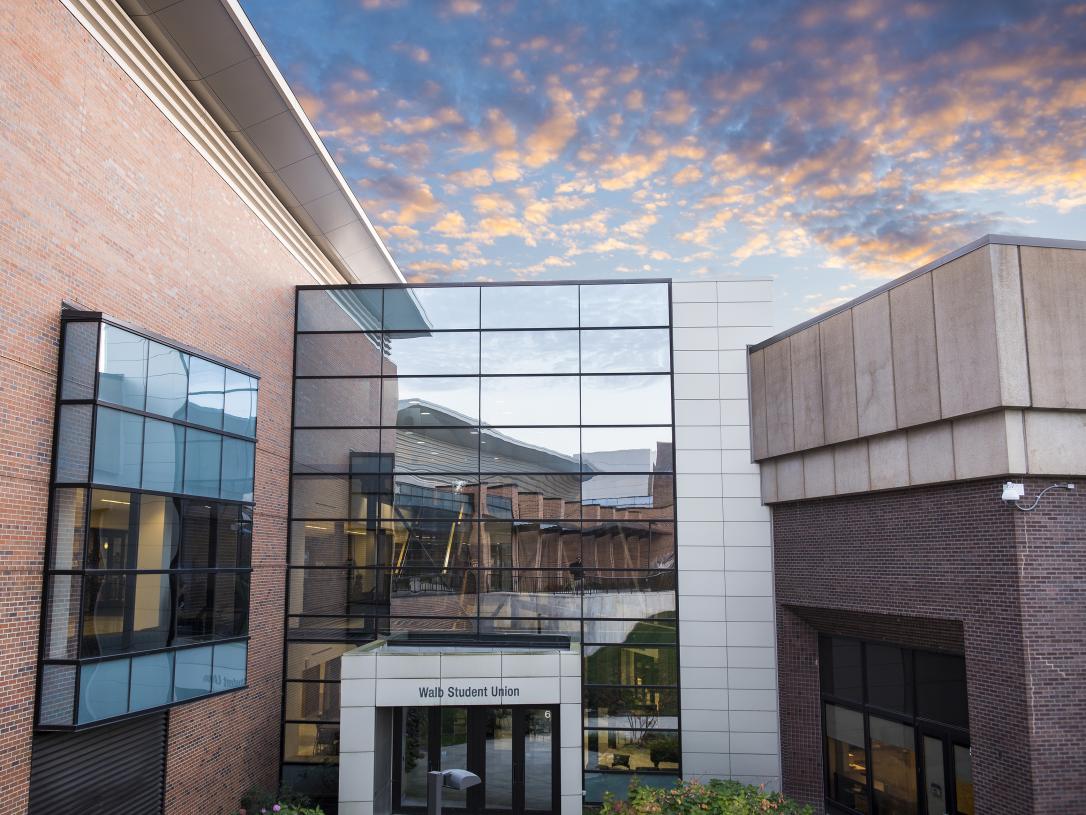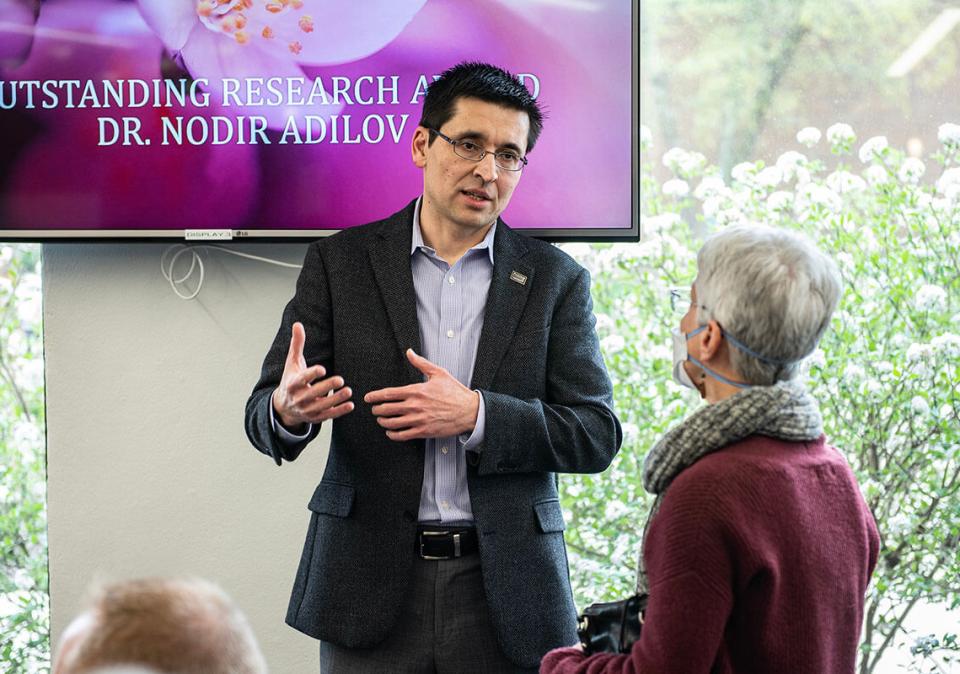
PFW Story
Adilov's strong research impresses faculty and family
Colleagues think Nodir Adilov’s work is fascinating, and his students are intrigued, but there’s an easy way to tell the impact of his work. His 11-year-old son thinks what dad does is cool.
Dan Adilov is fascinated with everything in outer space such as planets, rockets, and satellites—and his father, the Purdue University Fort Wayne professor of economics, is among the nation’s leading experts on the economics of space, particularly the debris ringing the planet.
NASA estimates there are about 23,000 items of space debris larger than a softball orbiting the earth. That includes nonfunctional spacecraft, abandoned launch vehicle stages, mission-related debris, and fragmentation debris—all traveling at up to 17,500 miles per hour. According to NASA, there are 500,000 pieces of debris the size of a marble or larger and more than 100 million smaller pieces.
As an example, after studying the sun for more than a decade, an old NASA satellite crashed into the Sahara Desert on April 20. Originally weighing 660 pounds, “Rhessi” had been turned off in 2018.
One of Adilov’s other areas of expertise, research on media economics, started his interest in satellites.
“There’s a clear connection from that to space economics,” he said, suggesting there was a lot of research being done on space debris, but strictly from the physics perspective. His work comes from the economics aspect.
“If you think about it, it’s not satellites that launch themselves into space, we send them,” Adilov said. “And we sent them for some commercial reason to make a profit from them. It’s not just a physics problem, but what is the human element and its contribution to it? We have to better understand why it is happening this way, and what we can do to align the need for an incentive to use space responsibly.”
The amount and density of space debris is why satellites and the International Space Station sometimes need repositioning to avoid it. Currently, the technology is not financially feasible to recycle space debris, but Adilov and his colleagues are working on creating market mechanisms for incentivizing companies and countries to improve the way they use space. Early ideas included taxes or orbital fees.
“Our current research shows that while that would be preferred, the economic incentives are not there,” Adilov said. “We’re working on different technological solutions for it. The cost right now is very high. If you are paying millions of dollars to clean up debris, who is going to pay for it? The idea is to find a way to create a workable market. If you set up the right incentives, then they are willing to invest in the technology and see this is a good opportunity for them.”
Born in Uzbekistan, Adilov came to America to study at Hartwick College in New York before earning his Ph.D. and master’s at Cornell University. He and his wife, Aidana, have been married for almost 17 years. After receiving his doctorate in 2005, he joined the faculty in Fort Wayne in 2006.
“When I came here to be interviewed, I really liked the department and the school,” Adilov said. “I liked the members of the department. They were very collegial and supportive, and I felt they would be good as colleagues and mentors.”
Adilov was named chair of the Department of Economics and Finance in PFW’s Doermer School of Business 11 years ago, but still maintains a productive research publication schedule, including 24 peer-reviewed journal articles and 50 conference presentations and papers. He is frequently asked to speak about his space debris research and often serves as a source for national and international news outlets.
“Dr. Adilov works quietly, continuously, and productively on his own research, while at the same time, he is a wonderful colleague and mentor to junior and senior colleagues alike,” said Melissa Gruys, dean of the Doermer School of Business.
Recently, Adilov was named winner of the 2022–23 PFW Outstanding Research Award, a career-achievement honor voted upon by previous winners.
“The award is not given for accomplishments in a given year, it is cumulative,” said Carl Drummond, vice chancellor for academic affairs. “The people who have been recognized, almost all of them are full professors with long, distinguished records. It’s a recognition of a career’s contribution and scholarship.”
Adilov said he was thankful to receive the honor.
“There are so many outstanding researchers at PFW,” he said. “I see their work, the presentations, and publications. This is an amazing campus where so many people are doing so much important and exciting work, and it’s very humbling to be recognized for my research.”
